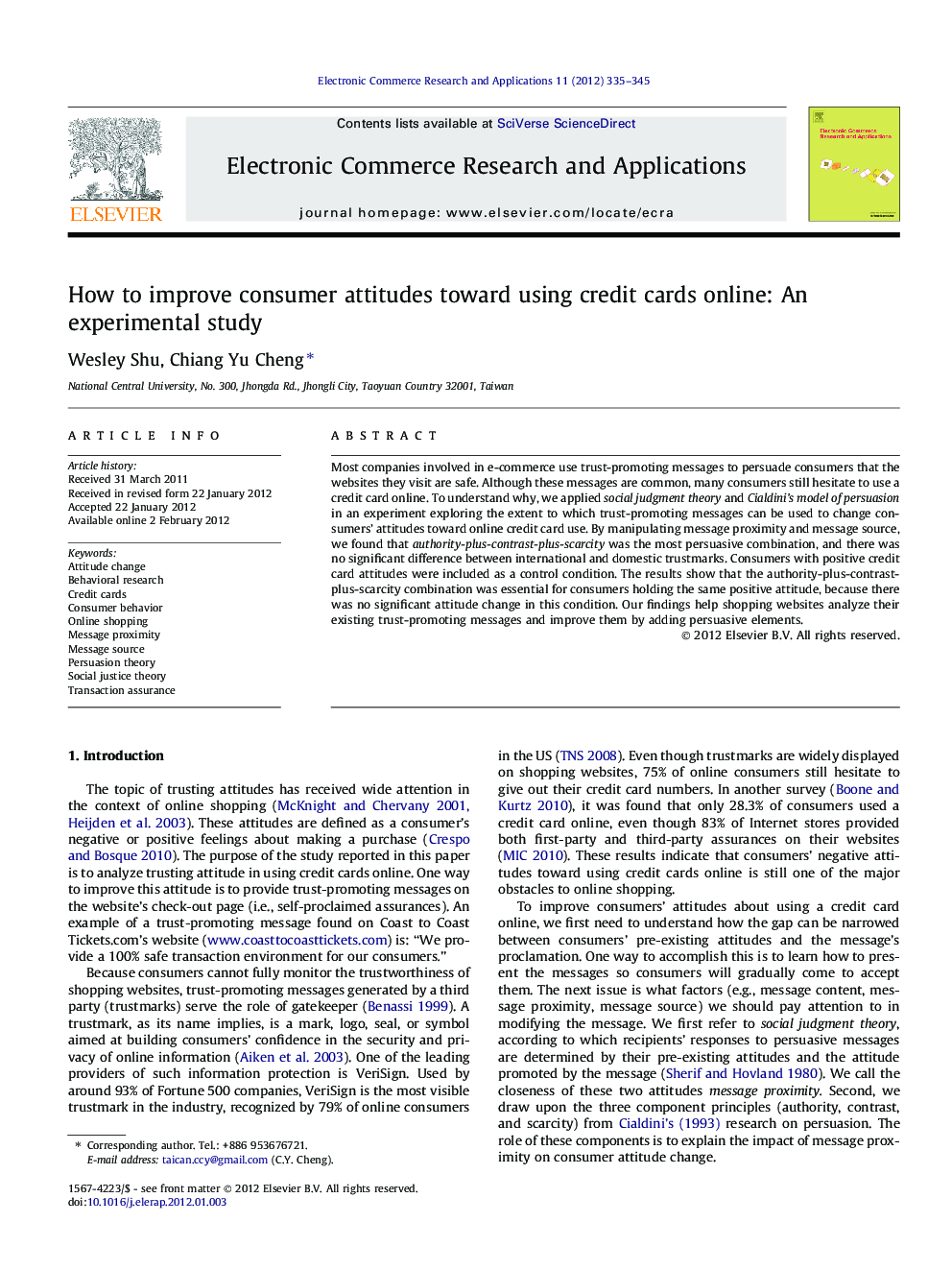| Article ID | Journal | Published Year | Pages | File Type |
|---|---|---|---|---|
| 379689 | Electronic Commerce Research and Applications | 2012 | 11 Pages |
Most companies involved in e-commerce use trust-promoting messages to persuade consumers that the websites they visit are safe. Although these messages are common, many consumers still hesitate to use a credit card online. To understand why, we applied social judgment theory and Cialdini’s model of persuasion in an experiment exploring the extent to which trust-promoting messages can be used to change consumers’ attitudes toward online credit card use. By manipulating message proximity and message source, we found that authority-plus-contrast-plus-scarcity was the most persuasive combination, and there was no significant difference between international and domestic trustmarks. Consumers with positive credit card attitudes were included as a control condition. The results show that the authority-plus-contrast-plus-scarcity combination was essential for consumers holding the same positive attitude, because there was no significant attitude change in this condition. Our findings help shopping websites analyze their existing trust-promoting messages and improve them by adding persuasive elements.
► Consumers do not use credit cards because they feel unsafe when shopping online. ► We explore the extent to which assurances can improve such negative attitudes. ► We found that “authority + contrast + scarcity” was the most persuasive combination. ► There was no significant difference between international and domestic trustmarks. ► Consumers with positive attitudes were also included as counter evidence.
